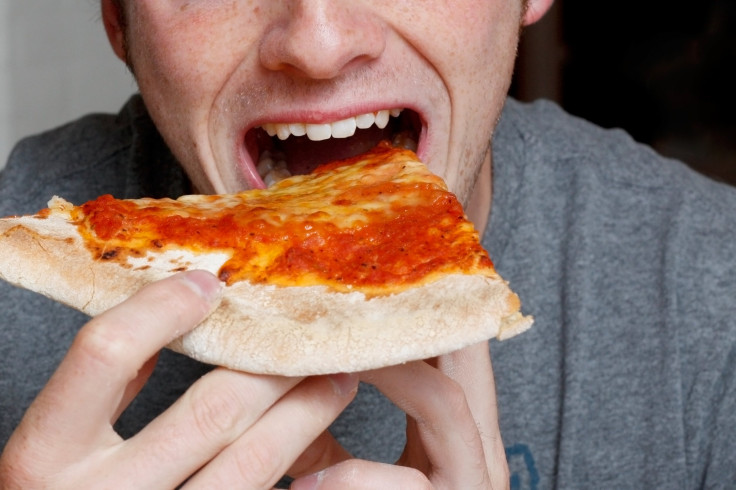Chew On This: Your Brother Scarfs His Food Down Because Men’s Chewing Patterns Differ From Women’s

It’s likely there’s someone in your family who's known as the food vacuum, or the garbage disposal. The brother who’ll clean everything off his plate within minutes and sometimes seconds.
To some, scarfing down food is natural, and the ability is often associated with growing teenage boys or grown men more so than women. A group of researchers from Semyung University in South Korea wanted to better understand what the chewing and eating differences were between men and women, and how chewing patterns had an effect on weight. In their study, which was published in the journal Physiology & Behavior, they found that men and women had vastly different chewing “performances,” and that obesity also had an effect on chewing and eating behaviors.
While we do it every day without thinking about it, chewing has an important role as the first step in the digestive process. Chewing is sometimes referred to as mastication: the process of teeth grinding down food to increase the surface area of food, making it more easily broken down by enzymes.
The study was partially motivated by the authors’ desire to investigate obesity therapies, such as modified eating behaviors. The way you chew your food, and how fast you do it, can have quite an impact on how much food you consume in a given amount of time. Generally, people who are obese often have much faster chewing tendencies, as well as a bigger bite size, than people of normal weight. Some other research, interestingly, has shown that eating more slowly may actually be linked to weight loss: since it prolongs the regulation of ghrelin, also known as the hunger hormone, and helps you feel more satisfied from less food.
Twenty-four males and 24 females participated in the study, and had electrodes attached to their jaw muscles. Each participant was given 152 grams of boiled white rice, and asked to eat it while the researchers measured their bite size; the quantity of food, in grams, ingested every minute; the number of chews per mouthful, and the total number of chews, among other things. The authors found that males were more likely to chew faster and have a bigger bite size than females, while females were more likely to chew more times per gram of food, making their meals last longer.
While the study found a significant difference between the chewing patterns of men and women, it did not fully explain whether chewing was directly related to weight gain or weight loss. Sure, chewing quickly and swallowing huge amounts of food in a short period of time might be a factor in obesity — but so are a myriad of other things like physical inactivity, depression, and genetics. The researchers concluded that they’ll need more research, but they hope that at some point the information will be used to develop obesity therapies.
“[C]hewing influences a range of cognitive and emotional functions, which are different in both under- and overweight patients compared with normal weight controls,” the authors wrote in their conclusion. “In addition, the modulation of eating behavior through chewing can be used as specific feedback to normalize food intake and, thus, normalize body weight.”
Source: Park S, Shin W. Differences in eating behaviors and masticatory performances by gender and obesity status. Physiology & Behavior, 2015.



























